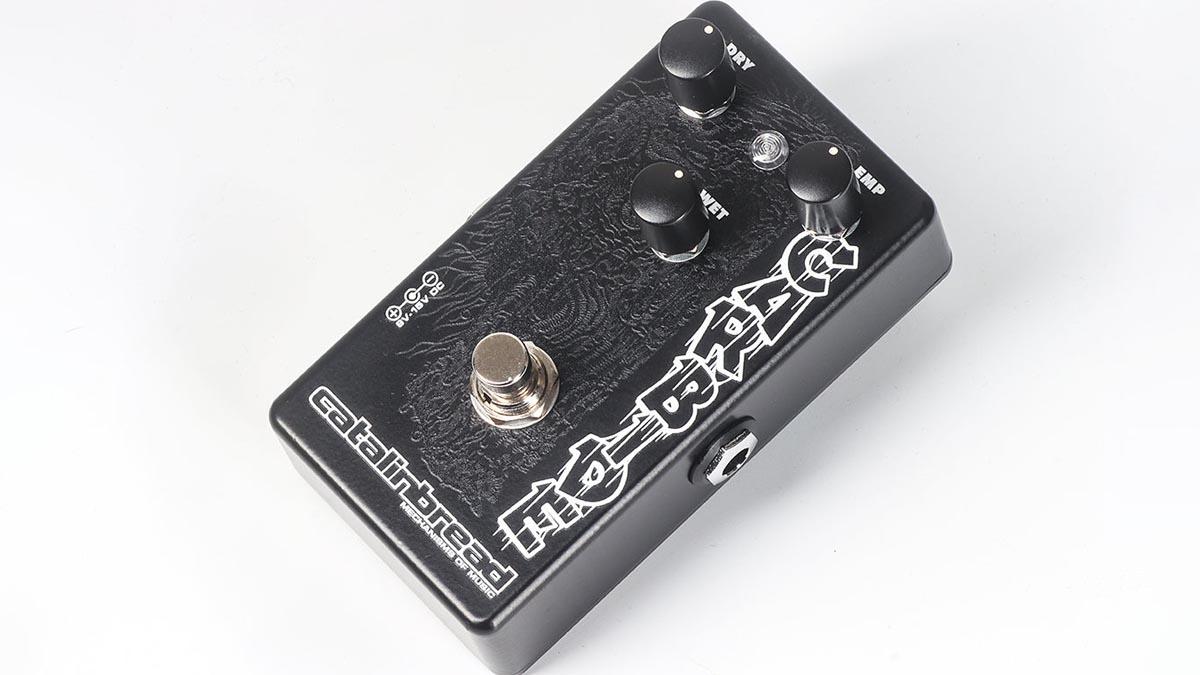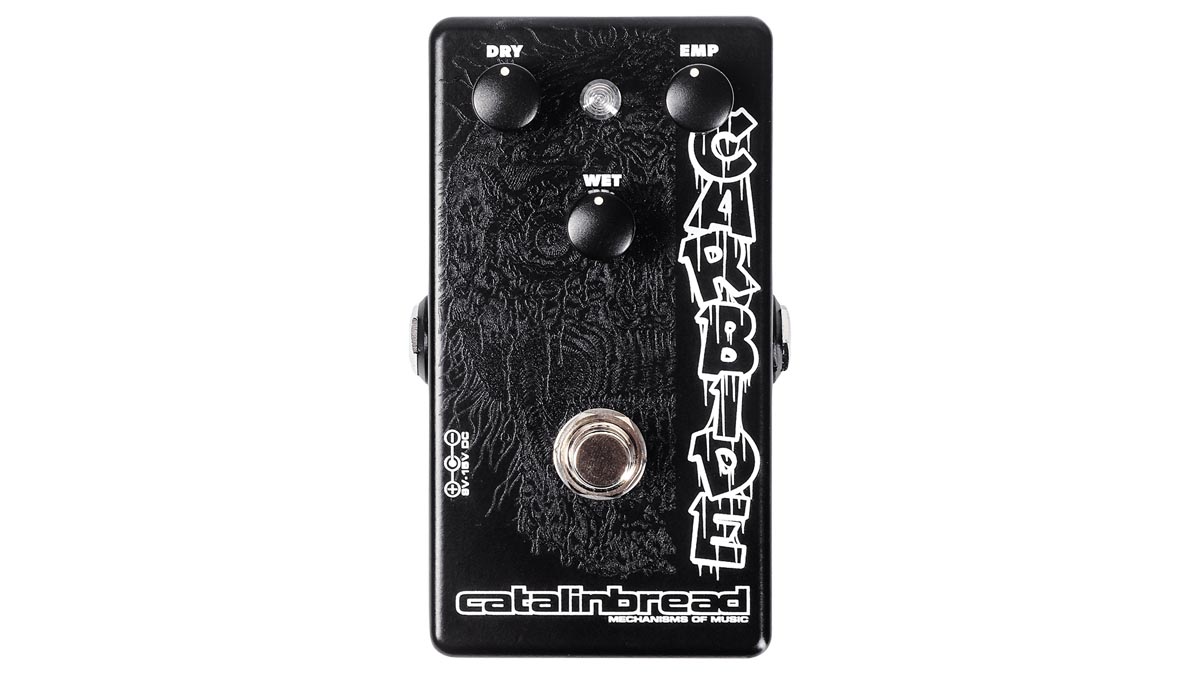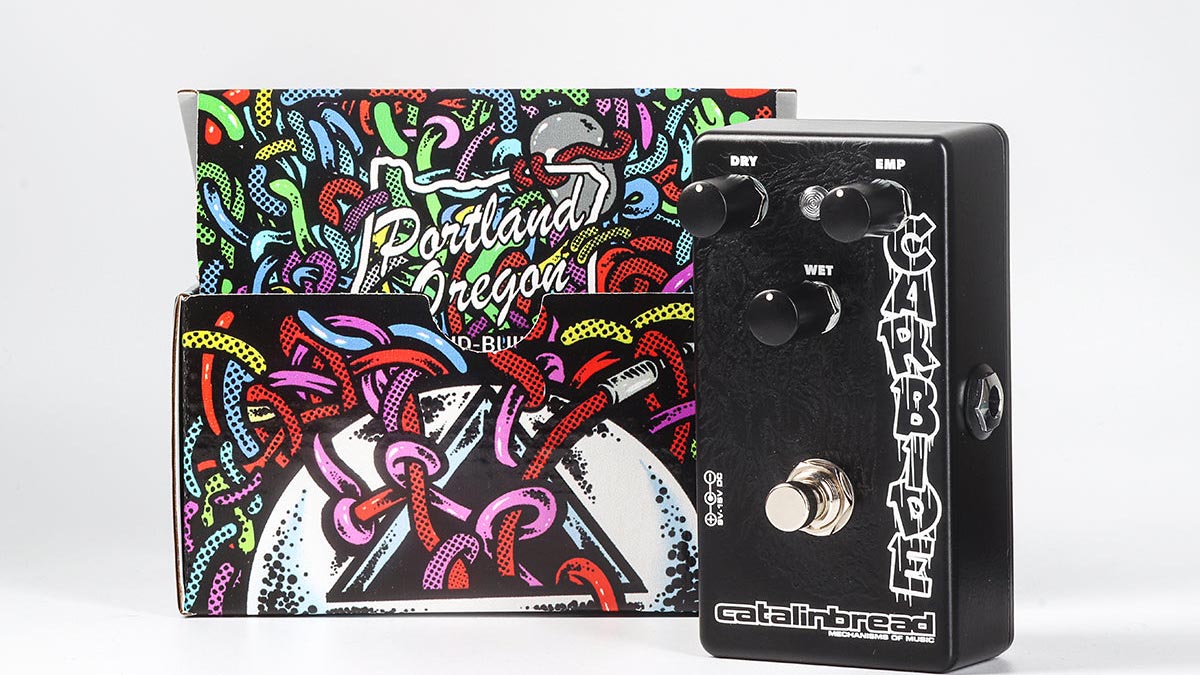Catalinbread’s new Carbide distortion pedal offers metal guitarists the ultimate in necro HM-2 “chainsaw” tone
The Carbide might split your guitar’s signal into clean and distorted paths but it is 100 per cent Left Hand Path

Want all the hottest music and gear news, reviews, deals, features and more, direct to your inbox? Sign up here.
You are now subscribed
Your newsletter sign-up was successful
Catalinbread has launched the Carbide, a high-gain distortion pedal dealing in the sort of “chainsaw” Boss HM-2 guitar tones that became one of the foundational sounds of death metal guitar, famously used and abused by Entombed on their seminal 1990 debut album, Left Hand Path.
The Boss HM-2 Heavy Metal is one of the most important pedals in the history of metal guitar, without which death metal might have sounded very different. And like many a guitar effects pedal of pop-cultural significance, it has been cloned over and over again. So what makes Catalinbread’s Carbide any different? And why should we care?
Firstly, those sounds, no matter how plagiarised, remain valid. In old-school death metal, the ragged clipping of the HM-2 still gives a downtuned riff the teeth to cut through. Secondly, the Carbide has some neat tricks up its sleeve.
It revises the HM-2’s four-knob layout, which makes sense considering the serving suggestions for the original “chainsaw” Swedish death metal sound were to dime all four controls (guitar amps should be treated with a similar maximalism). As such, Catalinbread describes this as “a pulverising distortion with heady boosts to certain frequency bands – three of them, to be exact – and a ton of volume.”

The Carbide is equipped with Dry, Wet and Emphasis knobs. How the Carbide treats your electric guitar signal is interesting, too. It is really quite clever. The Carbide splits the signal in two. Taking one half and feeding it through a clean boost section controlled by the Dry control, while the other is sent through the clipping path and controlled by the Wet dial.
Set either of these Wet and Dry controls fully counterclockwise and they are removed from the mix entirely. Yes, that means you can turn the Dry all the way down and make it 100 per cent chainsaw. But also, that means you can use the Carbide as a powerful clean boost.
With both signals run in parallel, however, you will probably want to find a sweet spot somewhere in between. Those who tune down, like, below C# as a rule – which lets face it is the demographic the Carbide is servicing – will find the boost section specifically voiced for their needs.
Want all the hottest music and gear news, reviews, deals, features and more, direct to your inbox? Sign up here.
The Emphasis dial offers an interesting take on the EQ options presented on the original Boss HM-2 design – again, which makes sense given how people actually used it.
The Carbide’s Emphasis dial tightens the low end and cuts treble to let the three boosted frequency bands pop out and, well, be more aggressive sounding. You can hear it for yourselves in the demo videos.

The Carbide is priced £/$189. For more details, head over to Catalinbread.
For an idea of how important and influential the original pedal was, Anders Nyström of Bloodbath and Katatonia checked in to talk HM-2 when Boss released its Waza Craft HM-2W edition of the pedal.
Jonathan Horsley has been writing about guitars and guitar culture since 2005, playing them since 1990, and regularly contributes to MusicRadar, Total Guitar and Guitar World. He uses Jazz III nylon picks, 10s during the week, 9s at the weekend, and shamefully still struggles with rhythm figure one of Van Halen’s Panama.
